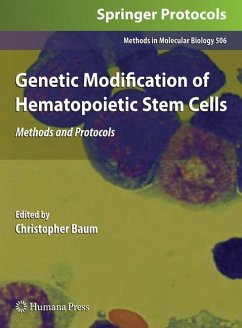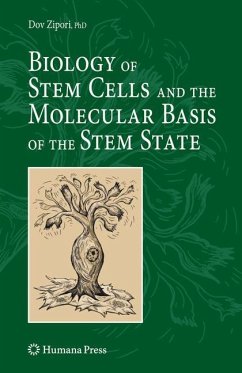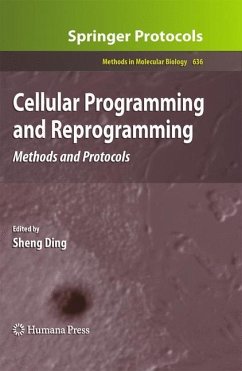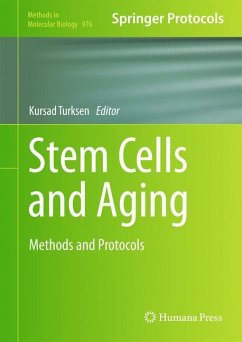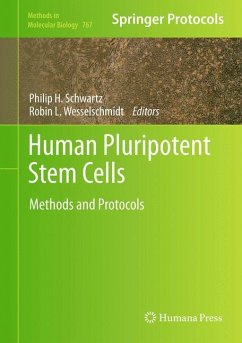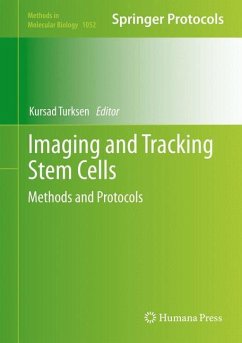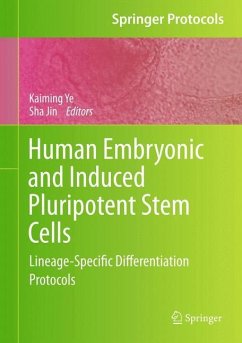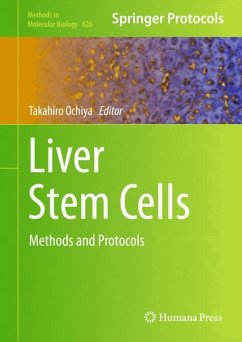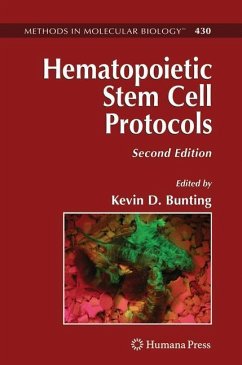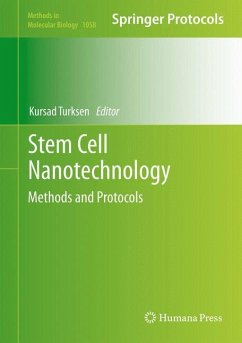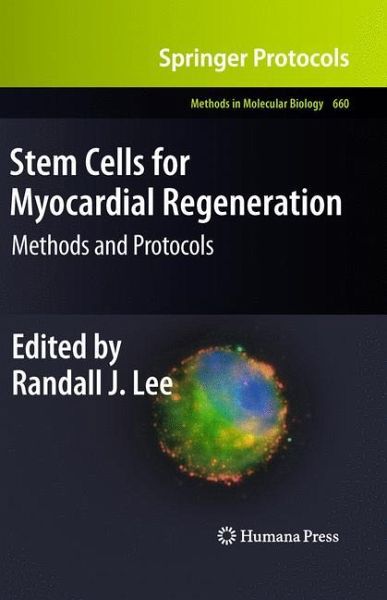
Stem Cells for Myocardial Regeneration
Methods and Protocols
Herausgegeben: Lee, Randall J.

PAYBACK Punkte
38 °P sammeln!
There is currently a great deal of enthusiasm surrounding organ regeneration, which mainly comes from the potential pleuripotency of stem cells to differentiate into various tissue types. In Stem Cells for Myocardial Regeneration: Methods and Protocols, expert researchers explore exciting new developments in the field of regenerative medicine, focusing both on the benefits of using stem cells in myocardial repair and regeneration and on the challenges associated with making this a mainstream therapy. Chapters consider the optimal cell type for myocardial repair, examine the developmental processes of the human heart in order to develop strategies for regeneration, consider ex-vivo optical mapping and in vivo electrophysiology studies, and investigate the effects of the extracellular matrix on stem cell renewal and differentiation. Composed in the highly successful Methods in Molecular Biology(tm) series format, each chapter contains a brief introduction, step-by-step methods, a list of necessary materials, and a Notes section which shares tips on troubleshooting and avoiding known pitfalls.
Ground-breaking and current, Stem Cells for Myocardial Regeneration: Methods and Protocols, is an essential guide for scientists, translational investigators, and cardiologists alike, providing readers with a means to evaluate the efficacy and safety of adopting stem cells as the standard for myocardial regeneration.
Ground-breaking and current, Stem Cells for Myocardial Regeneration: Methods and Protocols, is an essential guide for scientists, translational investigators, and cardiologists alike, providing readers with a means to evaluate the efficacy and safety of adopting stem cells as the standard for myocardial regeneration.
The feld of regenerative medicine is in its infancy state. Enthusiasm for the potential of organ regeneration lies with the potential pluripotency of stem cells to differentiate into various tissue types. This volume of Methods in Molecular Biology will focus on the use of stem cells for myocardial repair and regeneration. The emphasis of this issue will be to provide basic scientists, translational investigators, and cardiologists a means to evaluate the effcacy and safety of stem cells in a standardized fashion for myocardial regeneration. Many different cell types have been considered for myocardial repair. Adult card- myocytes are unable to survive even when transplanted into normal myocardium. The use of fetal or neonatal cardiomyocytes is not a feasible source of cells due to ethical concerns and donor availability. Therefore, the use of pluripotent stem cells has become the focus of a cell source for myocardial repair and regeneration. A variety of stem cell types have been suggested to participate in myocardial repair. This has led the investigators to search for the "optimal cell type for myocardial repair". Reliable isolation of the cell source with the ability to expand the cell population is a prerequisite. In the frst section of this book, methods for isolation of commonly used stem cells being investigated for myocardial regeneration are presented. Once a stem cell source has been selected, the stem cell needs to be tested in an app- priate animal model before being translated into clinical practice.




